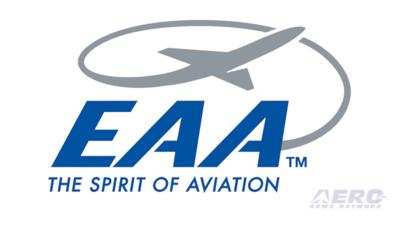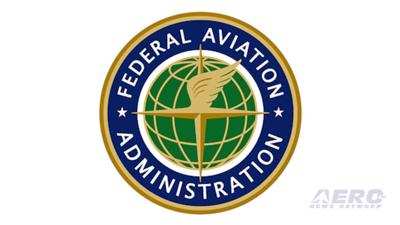… for Noncommercial Flight Training in Experimental Aircraft
On 08 February 2023, the FAA published a Notice of Policy in the Federal Register confirming that it would no longer require letters of deviation authority (LODAs) for most flight training in experimental aircraft—including instances in which the training aircraft’s use is provided in the absence of compensation.

LODAs pertaining to flight training in experimental aircraft were introduced shortly before AirVenture 2021 following a court’s ruling that almost all flight training in experimental aircraft was contrary to FAR 91.319(a)(2), which prohibits the operation of experimental aircraft for compensation or hire.
The FAA’s new policy is resultant of the James M. Inhofe National Defense Authorization Act for Fiscal Year 2023, the annual defense spending bill which was named for recently-retired Senator James Inhofe (Republican, Oklahoma, EAA 179992). Signed into law on 23 December 2022, the controversial bill—which included language supported by EAA, AOPA, and other aerospace stakeholders—set forth:
A flight instructor, registered owner, lessor, or lessee of an aircraft shall not be required to obtain a letter of deviation authority from the Administrator of the Federal Aviation Administration to allow, conduct or receive flight training, checking, and testing in an experimental aircraft if:
- (1) the flight instructor is not providing both the training and the aircraft;
- (2) no person advertises or broadly offers the aircraft as available for flight training, checking, or testing; and
- (3) no person receives compensation for use of the aircraft for a specific flight during which flight training, checking, or testing was received, other than expenses for owning, operating, and maintaining the aircraft.
The antecedent language eliminates the need for a LODA in most common cases of flight training—such as receiving a flight review or transition training in one’s own aircraft.
Those wishing to offer training to the flying public that includes the rental of an experimental aircraft will be obliged to secure a LODA. What’s more, the FAA’s LODA policy covers only certain types of training—such as transition training for builders and new owners of experimental aircraft, and training in certain low-mass, high-drag, ultralight types.
The Notice of Policy contains four examples of operations requiring LODAs, and four examples of operations not requiring LODAs. Subject examples are reproduced below, along with accompanying comments offered by the EAA.
Readers please note: hereafter, the term “Act” refers to the aforementioned Defense Authorization Act.
To wit.
Scenario A: An experimental aircraft owner wishes to hire a flight instructor to receive flight training in the owner's own aircraft. The owner intends to pay the flight instructor for the instruction. This operation is permissible under the Act without a LODA.
EAA’s comment: this is the most common—and essential—type of training in experimental aircraft, and is once again allowed to continue without any involvement from the FAA.
Scenario B: An experimental aircraft owner seeks to provide flight training in their aircraft to others. This owner (or a person or entity on the owner’s behalf) is willing to allow almost anyone to receive flight training in the owner's aircraft, provided the person receiving training pays a fee. The owner advertises flight training on a website and/or offers training flights to attendees at various air shows. This operation is not permissible under the Act and would continue to require a LODA.
EAA’s comment: this type of training has always required a LODA, as the FAA generally limits commercial flight training to aircraft with higher levels of certification oversight, unless such an aircraft does not exist (i.e. for transition training in home-built craft, jet upset training, etc.).
Scenario C: Four people co-own an experimental aircraft as part of a flying club. One of the quartet requires a flight review in the aircraft. Ergo, that person hires and pays a flight instructor for the required training. The flight instructor is also paid a prearranged hourly rate that covers fuel used during the flight and ongoing maintenance costs—such as engine reserves. All four co-owners pay the same hourly rate as a part of a co-ownership contract. Members of the flying club do not expect monetary gain or profit. Rather, the fee is in place to cover the costs of owning, operating, and maintaining the aircraft. This scenario is permissible under the Act without a LODA.
EAA’s comment: This is confirmation that experimental aircraft may be operated by noncommercial flying clubs, and training in such aircraft is permissible without a LODA.
Scenario D: An owner of an experimental aircraft founds a flying club and advertises for purpose of gaining club members. The club founder charges a fee for “club membership,” and club members are given a flight training flight, or series of flights in return. The collected fee occasions a profit for the owner in excess of the compensation permissible under the Act. This operation includes broadly offered flight training, as well as an operator offering both the aircraft and the instructor. This operation is not permissible under the Act and would continue to require a LODA. Depending on the circumstances, this operation may also require some other kind of authorization from the Administrator, such as an air carrier or commercial operator certificate, or a commercial air tour letter of authorization.
EAA’s comment: This is an unusual scenario in which a flying club financially enriches an aircraft owner. Additionally, flying clubs “broadly offering flight training” are not allowed under the new law, which is consistent with longstanding FAA policy regarding all flying clubs (operating experimental aircraft or otherwise) at publicly funded airports. Flying clubs may provide training to their members, but may not represent themselves to the general public as flight training operations. (see Page 10-4 of FAA Order 5190.6B).

Additional relief is required, but must be accomplished via rulemaking. Notably, the relief in question extends to experimental aircraft and excludes Limited and Primary Category aircraft. The term Primary Category refers to a rarely-used aircraft certification category; it is not a reference to primary training. The EAA holds an exemption that provides relief to Limited Category aircraft owners and operators, and will continue to hold such exemption until the issue is resolved.
EAA members seeking additional information are invited to view a recent webinar presented by the association’s government relations director, Tom Charpentier. The webinar explains the history of the LODA issue, and the continued use of LODAs for vital specialized training. The webinar was recorded prior to the publication of the FAA’s new Notice of Policy.
 ANN's Daily Aero-Term (04.26.24): DETRESFA (Distress Phrase)
ANN's Daily Aero-Term (04.26.24): DETRESFA (Distress Phrase) ANN's Daily Aero-Linx (04.26.24)
ANN's Daily Aero-Linx (04.26.24) Airborne 04.22.24: Rotor X Worsens, Airport Fees 4 FNB?, USMC Drone Pilot
Airborne 04.22.24: Rotor X Worsens, Airport Fees 4 FNB?, USMC Drone Pilot Airborne 04.24.24: INTEGRAL E, Elixir USA, M700 RVSM
Airborne 04.24.24: INTEGRAL E, Elixir USA, M700 RVSM Airborne-NextGen 04.23.24: UAVOS UVH 170, magni650 Engine, World eVTOL Directory
Airborne-NextGen 04.23.24: UAVOS UVH 170, magni650 Engine, World eVTOL Directory




